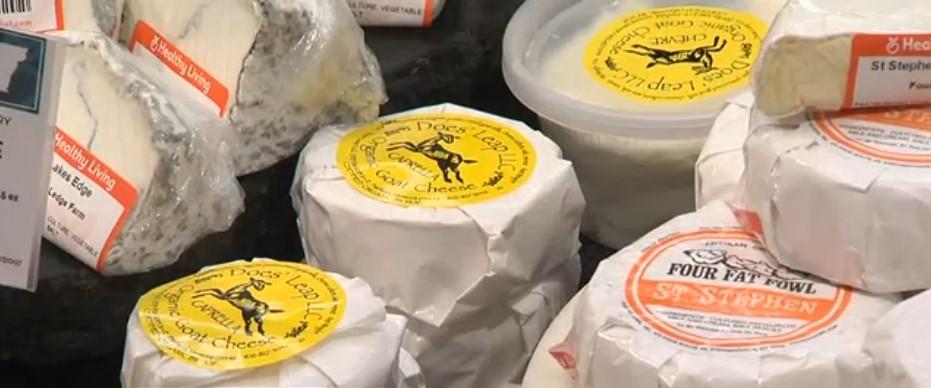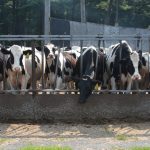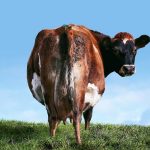
“Just sells like crazy,” said Seth Walker, the chill category manager at Healthy Living supermarket in South Burlington. “It’s just become really popular.”
A quick walk through the dairy section of Healthy Living and you can see cows still reign, but goat products are on the up. Last year, there was a roughly 8% rise in sales of goat products at the store, particularly cheese.
“The demand always outweighs the supply, which is something we can’t get around,” said Walker.
While it’s still considered a specialty product, the market is expanding.
“Goat milk right now is essentially produced and then created into a higher value user product,” said Laura Ginsburg with the Vermont Agency of Agriculture, Food & Markets.
Goats are simply handled differently and their product is valued separately from a cow — often higher — so there is money to be made in the struggling dairy industry.
“So there is a lot of opportunity for producers to get their foot in the door and create something new and interesting and innovative and get consumers interested in their products,” Ginsburg said.
She also says companies like the Vermont Creamery continue to grow their market share as a national goat dairy leader, but they need producers.
“So far it’s gone well and getting better all the time,” said Brian Jones with Joneslan Farm in Hyde Park.
Joneslan Farm was strictly dairy cows for more than 140 years but made the switch to goats a few years ago. Now, they are roughly 800 strong.
“The demand is growing, I think, and it’s an opportunity for some people to do it. And it’s not for everybody, but it is for some people. It’s an opportunity,” said Jones.
So far, beyond learning curves, Jones says it’s been smooth. Goats use less water, less diesel fuel, and less hay — all benefits for the farm and the planet. He says they are friendly and a little mischievous but easy to handle.
“I think it’s going to continue to grow for quite some time,” said Jones.
And as farmers like Jones continue to produce it, stores like Healthy Living will buy it up while they can, not only as cheese but in any form.
“There are products in our wellness department — soaps, everything like that. Yogurt is big and kefir is really, really big — probiotics and things like that,” said Walker.
He says one of the challenges is occasional product shortages. It’s a fast-growing industry with high demand, but because a lot of producers are small or still figuring out their supply, there will be growing pains. That’s why they are choosing to educate consumers about how goat farming works.
Vermont ag officials are also watching the industry carefully.
“It is something we are watching and staying aware of and also interested in supporting farmers in any way they want to produce. If they want to do a value-added product themselves or work on shipping to someone that will do that value-added product for them. Supporting all the players on the supply chain spectrum is really important and goats are going to be a part of the future of Vermont agriculture,” said Ginsburg.

























